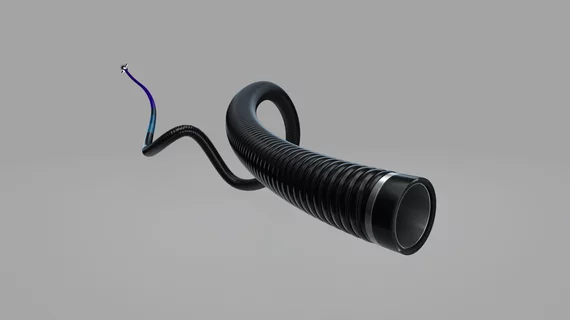Regulatory Roundup: FDA clears 2 new solutions, declines to approve omecamtiv mecarbil for HFrEF
The U.S. Food and Drug Administration (FDA) was as busy as ever in February. The agency cleared a new cardiac imaging solution, approved a new indication for an Abbott catheter and even helped Medtronic relaunch a heart valve after a recent recall.
Of course, that’s just the tip of the iceberg. This is a review of some other big FDA-related stories that have hit cardiology since the last Regulatory Roundup was published on Jan. 31:
1. FDA clears Perfuze’s Millipede 088 Access Catheter
Perfuze, a healthcare technology company based out of Ireland, has received FDA clearance for its Millipede 088 Access Catheter. This represents the company’s first FDA clearance.
The Millipede 088 Access Catheter was developed to help clinicians insert and guide catheters during neurointerventional or diagnostic procedures to treat acute ischemic stroke.
“Our mission is to improve patient outcomes and provide physicians with better, easier-to-use tools,” Wayne Allen, Perfuze CEO, said in a prepared statement announcing the news. “This regulatory clearance brings us a step closer to achieving that goal. Looking ahead, 2023 will be an important year for Perfuze as we move towards initiating our U.S. pivotal study of the Millipede System for revascularization of patients with acute ischemic stroke."
2. FDA does not approve omecamtiv mecarbil for heart failure with reduced ejection fraction
Cytokinetics, the San Francisco-based biopharmaceutical company, announced that the FDA has chosen not to approve its omecamtiv mecarbil medication for treating adult patients with heart failure with reduced ejection fraction (HFrEF). According to the FDA, the data presented by Cytokinetics was not persuasive enough; an additional clinical trial would be required before the agency could approve omecamtiv mecarbil for this indication.
“We are disappointed with this outcome, especially considering the high unmet need for innovative treatments for patients suffering from worsening heart failure,” Robert I. Blum, Cytokinetics’ president and CEO, said in a statement. “We are humbled by the support of the heart failure community and will engage with FDA and consider what may be next steps for omecamtiv mecarbil in the U.S.”
Back in December, the agency’s Cardiovascular and Renal Drugs Advisory Committee ruled that the benefits of omecamtiv mecarbil for HFrEF did not outweigh its risks. At the time, this was seen as a sign that the FDA may decline to approve the medication.
Going forward, Cytokinetics has said it has no plans to conduct an additional clinical trial on omecamtiv mecarbil. In fact, the company is now focused on researching another medication, aficamten.
3. FDA clears SpectraWAVE’s new intravascular imaging system
SpectraWave, a Massachusetts-based medical device company founded in 2017, has gained FDA clearance for its HyperVue intravascular imaging system.
The HyperVue system uses both DeepOCT and near infrared spectroscopy (NIRS) imaging to help guide stent placement during interventional cardiology procedures in the cath lab. Users control both image acquisition and image review as they carry out the procedure. SpectraWave noted in its statement that physicians are now using the HyperVue system for an ongoing first-in-human study.
“This is a landmark day for SpectraWAVE, but more importantly, a critical step toward improving outcomes for patients with coronary artery disease,” Eman Namati, PhD, SpectraWAVE CEO, said in the statement.

